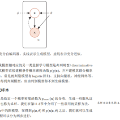In this paper, we consider controllability as a means to satisfy dynamic preferences of users, enabling them to control recommendations such that their current preference is met. While deep models have shown improved performance for collaborative filtering, they are generally not amenable to fine grained control by a user, leading to the development of methods like deep language critiquing. We propose an alternate view, where instead of keyphrase based critiques, a user is provided 'knobs' in a disentangled latent space, with each knob corresponding to an item aspect. Disentanglement here refers to a latent space where generative factors (here, a preference towards an item category like genre) are captured independently in their respective dimensions, thereby enabling predictable manipulations, otherwise not possible in an entangled space. We propose using a (semi-)supervised disentanglement objective for this purpose, as well as multiple metrics to evaluate the controllability and the degree of personalization of controlled recommendations. We show that by updating the disentangled latent space based on user feedback, and by exploiting the generative nature of the recommender, controlled and personalized recommendations can be produced. Through experiments on two widely used collaborative filtering datasets, we demonstrate that a controllable recommender can be trained with a slight reduction in recommender performance, provided enough supervision is provided. The recommendations produced by these models appear to both conform to a user's current preference and remain personalized.
翻译:在本文中,我们认为控制是满足用户动态偏好的一种手段,使用户能够控制建议,从而满足当前的偏好。虽然深层模型显示合作过滤的性能有所改善,但通常不易由用户微细细细细细细地控制,从而导致开发深语言滑动等方法。我们提议另一种观点,即使用一个(半)超强的分解目标,而不是基于关键词的批评,而提供一个用户在一个不相干的潜在空间里,每个 knob 对应项目偏好。这里的分歧是指一个潜在的空间,在这个空间里,基因因素(这里,偏好像基因一样的物品类别)在各自的层面独立捕捉,从而使得可以进行可预测的操纵,否则不可能在纠缠的空间里开发出一个类似的方法。我们提议使用一个(半)超强的分解目标,以及多个衡量尺度来评价受控建议的可控性和个性化程度。我们通过更新基于用户反馈的分解隐蔽空间,以及利用当前精度性性化性分析性能,从而通过对用户进行足够细化的精确性化的测试,可以提供一种经过培训的实验。



